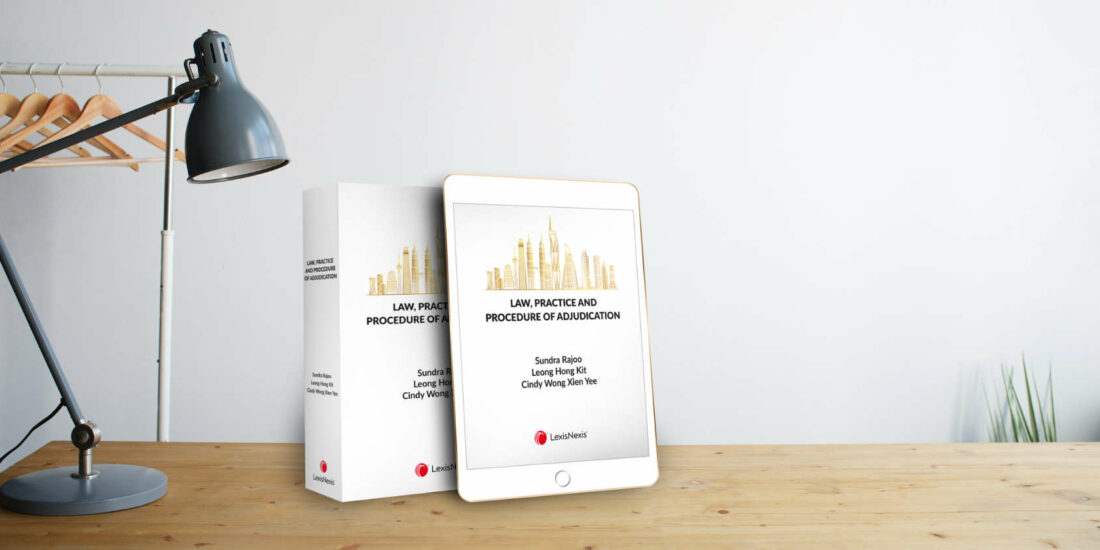The Legal Lion of the Commonwealth
Angela Yap and Ritchie Ramesh (Eds)
Eusoffe Abdoolcader was a prominent Malaysian Judge who presided over, or was involved in, some of that country’s landmark cases. Abdoolcader was also known for being very erudite and one of the most articulate members of the Malaysian legal fraternity. Elevated to the Bench in 1974, he soon gained a reputation for integrity and perfectionism as well as for not suffering fools gladly. This book, put together in two volumes to “revive the legacy” of this towering figure, is a collection of some of his most important judgments spanning the period 1975-1989, but it also carries tributes, vignettes from his life, an interview, and an article penned by the Judge in 1977.
The compilers of the volumes have clearly been affected by what they call the “indifference” that has existed towards Abdoolcader in the years that have elapsed since his death in 1996. The book is, they say, “our musketry against such indifference”. Not lawyers themselves – nor with any ties to the Abdoolcader family – they hope that their offering “goes beyond the romanticised myths that the people, the media and institutions have, rightly or otherwise, built around him.”
Abdoolcader’s reputation and influence went well beyond Malaysia. As one British QC is reported to have said in a tribute which appeared in The Observer (London), Abdoolcader’s was a “legal mind as formidable as can be found in any Court in the Commonwealth”. Not for nothing did he earn the nickname the “Legal Lion of the Commonwealth”. As the editors note:
Firstly, his many judgments created ripples far beyond Malaysian shores and influenced the direction of other Commonwealth nations. Cited as foreign precedents by constitutional judges in countries such as New Zealand and Australia, the ‘even here-even there’ approach was applied when these courts relied on progressive foreign precedents such as Eusoffe’s to initiate into their legal system new or revised perspectives in their respective constitutions … . As recently as 2013, international law journals have referenced Eusoffe’s judgments on constitutional reform for indigenous rights.
Secondly, of the innumerable Commonwealth judges, he is one of the hallowed few with the distinction of having his judgments … cited with approval by the Judicial Committee of the Privy Council in London circa 1981, a rare honour in the days when the Privy Council was the highest court of appeal for the Commonwealth.
But, above all, “The Legal Lion” is a fitting monicker [sic] for a man whose fierce and regal qualities mirrored that of the king of the jungle.
The judgments chosen for the volumes span a wide range of subject areas: contract, crime, contempt of court, bankruptcy, property, citizenship, employment, education, deprivation of liberty, public order, personal injuries, rights of association, shareholders’ rights, copyright, elections, land rights, equitable reliefs, judicial review and much else besides. What runs through the judgments, apart from the Judge’s mastery of each of these branches of the law, is a felicity of expression, which is as rare as it is heart-warming. No less striking is his wry sense of humour: sample these opening sentences in two separate judgments:
This case, which, like the papacy of Pope John Paul I, lasted 33 days in the hearing …
Merdeka [Freedom], proclaimed Tunku Abdul Rahman to the resounding echo of the populace, and so it came to be. But the cry for Merdeka University has not achieved the same response and result. And thus the matter comes before the court.
Or sample this closing observation in a case involving allegations of electoral corruption:
I have dealt with the matter before me strictly on its facts and circumstances and what I have said must not be taken to bestow and unbridled licence on would-be political brawn crackers to transcend the twilight zone between campaign pledges and promises and electoral misfeasance, as the next step beyond might well make all the difference.
There is much in these volumes by way of illumination and amusement for lawyers and lay readers alike. That the book should come out now also serves to highlight the very considerable change that the Malaysian judiciary has undergone between Abdoolcader’s time and the present – a reminder which is both timely and necessary. The editors indicate that the present work is “merely the beginning, the first of several other books outlining our research to revive the legacy of Eusoffe Abdoolcader and Malaya’s most illustrious forgotten family.” Those books will, it can be safely said, be eagerly awaited by many in Malaysia and further afield.
This review first appeared in The Commonwealth Lawyer, the journal of the Commonwealth Lawyers’ Association. Dr Venkat Iyer is a barrister based in Northern Ireland.
Available from Akasaa Publishing, Kuala Lumpur, Price: SGD180 + p&p







